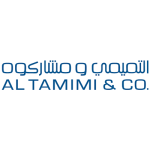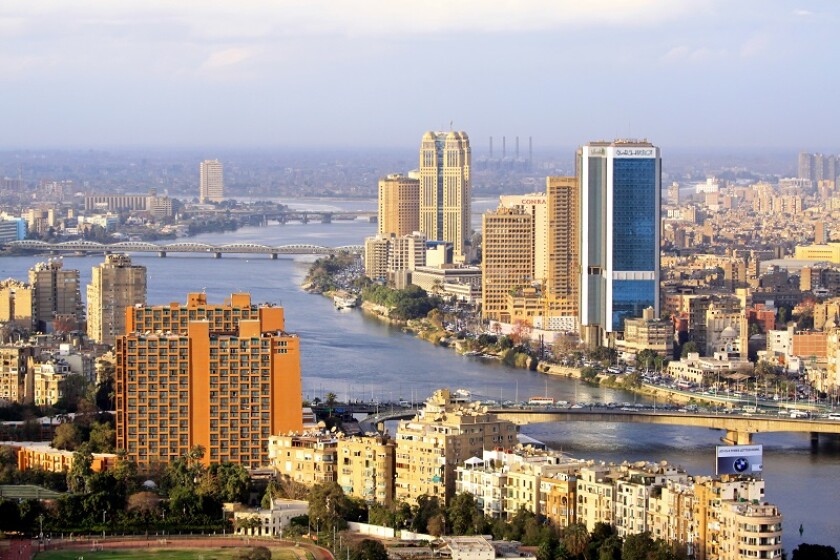Egypt’s corporate and legal framework has undergone a number of recent reforms to incentivise foreign investment. Al Tamimi’s Mohamed Gabr and Ingy Darwish explore the key changes
Egypt's legal system is strongly influenced by both French civil code and Islamic Sharia'h. It mainly relies on legal codification, with judicial precedents playing a less important role compared to common law jurisdictions. The Civil Code is the main pillar of the Egyptian legal system. It codifies contract law and governs all types of sale and purchase transactions. Therefore, all M&A governed by Egyptian law is mainly regulated by the Civil Code.
The main legislation in the Egyptian corporate legal framework includes the Companies Law No. 159 of 1981 and its Executive Regulations, which regulates corporate governance matters; and the Capital Market Law No. 95 of 1992, which regulates the public offerings of securities and takeover rules pertaining to publicly listed companies, among others.
The listing rules of the Egyptian Exchange (EGX), which was issued pursuant to Decree No. 11 in 2014 by the board of directors of the Financial Regulatory Authority (FRA), regulates transactions involving listed companies whether as targets or parties. These rules tackle the listing, delisting and disclosure requirements of securities on the EGX.
Egypt's new Investment Law, which supersedes the old Investment Law, regulates various investor incentives and guarantees, as well as specific investment regimes and procedures. It also complements the Companies Law in certain areas of corporate law.
Finally, Competition Protection Law No. 3 of 2005 (and its Executive Regulations), promote and protect market competition for the purpose of enhancing economic efficiency, economic growth and consumer welfare.
Egypt's investment framework
Egypt's growing M&A industry has urged Egyptian regulators to put in place a set of policies to prevent anti-competitive business practices, abuse of market power and dominance, and anti-competitive mergers. Accordingly, Competition Protection Law and its Executive Regulations require that the Egyptian Competition Authority (ECA) is notified within 30 days of the conclusion of any M&A transaction, if the annual turnover of the relevant person (or persons) is in excess of LE100 million ($6 million).
The relevant provisions of 2005's Competition Protection Law No. 3 and its Executive Regulations remains subject to multiple interpretations, and is conflicting in specifying both how the aforementioned threshold should be calculated, and whether it is limited to the turnover in the Egyptian market (or should be applied globally).
The main regulators of the Egyptian corporate legal framework are the Egyptian Exchange (EGX), the General Authority for Investment and Free Zones (GAFI), and the Financial Regulatory Authority (FRA). The main responsibility of these regulatory bodies is to ensure that appropriate regimes, standards and practices are developed and applied in relation to corporate governance principles.
This obviously raises practical complications with respect to major multi-jurisdictional M&A transactions involving large multinational corporations with huge global turnover and a limited presence in the Egyptian market. The conservative approach is to notify the ECA in those cases, notwithstanding low turnover levels in the Egyptian market. A change to this notification requirement is currently under discussion to prevent any potential anti-competitive practices.
Recent legal amendments
The Egyptian corporate legal framework has undergone numerous reforms to create attractive investment and business climates and to mobilise private investment (especially foreign direct investment – FDI).
In particular, the last couple of years has seen numerous legal developments, the most notable being Investment Law No. 72 in 2017 and the Bankruptcy Law No. 11 in 2018 (which have superseded their predecessors), as well as the passing of the Movable Securities Law No. 115 in 2015. Furthermore, several amendments to the Companies Law and its Executive Regulations were implemented to enhance and improve Egyptian corporate law.
The most notable amendment to the Companies Law and its Executive Regulations is the introduction of the sole person company ("sole proprietorship"), which allows the incorporation of an Egyptian company that is fully owned by a single natural person or juristic person. The main objective of this new development is to encourage more investment in small and medium enterprises (SMEs).
Another important amendment is the adoption of a shareholders' agreement to complement the by-laws of a joint stock company. This allows the relevant parties to tailor the corporate governance rules, taking into account the balance of interests of the parties, on a case-by-case basis. This new provision reduces the occurrence of conflict or ambiguity between the terms of a company's by-laws, and the complementary contractual arrangement between the shareholders.
Although the aforementioned amendment is an important step towards enhancing corporate governance, it remains a novel legal development. Investors are therefore reluctant to adopt such structure, especially in the absence of regulatory expertise and court precedents.
The lengthy and complicated procedures associated with the previous bankruptcy framework was one of the more challenging aspects of doing business in Egypt. Amending the bankruptcy framework created a friendlier and less intimidating business environment for struggling businesses.
This was firstly achieved by creating a win-win situation for all the concerned parties in the bankruptcy process. Secondly, the new regime no longer treats the bankrupt person as a criminal, and introduces new comprehensive mechanics with detailed timelines to mitigate potential losses arising from any insolvency through intervention of the competent court. The involvement of the court aims to put in place an efficient and adequate reorganisation plan with a detailed timeline, for the purpose of assisting the debtor and its creditors to achieve the reorganisation. Thirdly, the new law allows debtors to file for bankruptcy while still operating the business during the negotiation period.
Debt market reformations
One of the main obstacles facing SMEs in Egypt's debt market is obtaining financing due to the absence of suitable collateral. The Movable Securities Law aims to address this challenge by putting in place an electronic registry with the purpose of registering movables that may be used as collateral. Collateral may include: existing or future physical assets or moral rights, receivables, credit notes, bank deposits or accounts, equipment, tools, stock, trees, and agricultural products, among others.
Furthermore, creditors no longer need to hold possession of the movable asset used as collateral, as required under the previous Civil Law regime. As such, the debtor will be able to use the pledged asset while it is securing the debt. The existence of such a register will also enable any party that has a legitimate interest over the movable asset to object to the deposited collateral.
Finally, the Movable Securities Law allows creditors to directly recover their debt, or directly sell the pledged movables, without obtaining a court order, while also being able to implement a direct set-off mechanism with bank accounts.
New opportunities surfacing
The Central Bank of Egypt (CBE) implemented several polices to protect the value of the Egyptian pound, which was considered much higher than its actual value in the unofficial market. The factitious value of the Egyptian pound and the high volatility in the parallel market (prior to the CBE's economic and financial reforms), affected foreign investor confidence in the repatriation of funds, and reduced foreign investor appetite for investment in Egypt.
A number of significant changes have occurred, starting with the CBE's decision to float the Egyptian pound on November 3 2016, and this was followed by the International Monetary Fund (IMF) extending a $12 billion loan to Egypt, approved on November 11 2016. Since then, the Egyptian pound has lost slightly more than 50% of its value.
On June 14 2017, the CBE finally lifted restrictions on foreign currency transfers. The conclusion of the IMF loan, the fair valuation of the Egyptian pound, the stabilisation of the foreign currency exchange rates, the increased availability of foreign currency, and the removal of various restrictions and bottlenecks surrounding fund repatriation have all contributed to increased foreign investor confidence in the Egyptian economy.
Most of the M&A activity in the Egyptian market in the past few years has been focused on the defensive sectors with rather stable levels of demand (for example, health, education and fast moving consumer goods). Healthcare and education continue to drive the trend in M&A activity in spite of macroeconomic and political challenges. The emergence of a local infrastructure and ecosystem is also noticeable, with several local investment banks and private equity firms playing a significant role in M&A activity.
Data from the World Health Organisation suggests that in 2015, total healthcare expenditure in Egypt accounted for 4.18% of the country's GDP, of which only 30.08% could be attributed to public expenditure. This has created a vacuum which has effectively been filled by the private sector.
The inefficiency of the public healthcare sector and its inability to supply services has created a high demand for private sector services. This has been accentuated by a surging population. In such a defensive sector (which is inherently characterised by a less elastic demand), private investors are seeking an opportunity to fill the gap and secure a guaranteed return on their investment, especially in light of the uncertainties that dominate Egypt's political climate and macroeconomic performance.
In the education sector, the Egyptian government spends less than 4% of its budget on education. This has also created a gap, and is being bridged by the private sector. Due to overpopulation and a lack of resources, a huge share of the education services market remains untapped, creating substantial business opportunities for foreign and local investors.
Many foreign investors are recognising these potential opportunities and are interested in acquiring or partnering with existing local businesses. On the other hand, existing players in the education sector are expanding their current businesses for the purpose of growing their market share, which often requires raising capital.
Structuring mergers and acquisitions
Investors commonly resort to equity acquisitions, whether through subscribing to newly issued shares in the target company or acquiring equity from existing shareholders, or by simply combining both mechanics. Asset acquisitions are less common and are only used in special circumstances, particularly in relation to potential tax and employment liabilities.
Mergers and acquisitions in Egypt are typically financed through equity. In the case of strategic investors, the main vehicle is self-financing, while financial investors commonly set-up private equity (PE) funds, quasi-funds or investment vehicles based on variations of the GP/LP model, or other investment management structures. Investors usually opt for equity financing considering the difficulty in obtaining debt financing in Egypt in the context of M&As. Such a challenge emanates from a number of reasons.
Firstly, leveraged buyouts (LBOs) involving debt are complex to apply. On the one hand, upstreaming dividends requires adequate profits and/or retained earnings (permitting distribution to the parent), while dividends are currently subject to a withholding tax (WHT) rate of 5% or 10%.
On the other hand, Egypt's Companies Law prohibits the use of the target company as a guarantor of a loan if the company is a member of its board of directors. As a result, in most cases, investors choose to set up an acquisition vehicle that would eventually be merged with the target company. Nonetheless, this process is not without legal, tax and accounting challenges.
Secondly, the CBE imposes a number of restrictions on local banks acquiring financing for acquisitions, and limits single client lending. The CBE also imposes requirements around due diligence and valuation, as well as imposing criteria to increase the risk-weighted credit exposures related to acquisition financing when calculating capital adequacy requirements.
Private equity investors widely opt to inject their investments through foreign entities. In recent years, PE investors have become increasingly inclined to establish foreign special purpose vehicles (SPV) in appropriate jurisdictions (such as Mauritius and the Netherlands), through which they wire their investments into Egyptian entities and ensure the validity and enforceability of any complementary commercial arrangement (entered by the shareholders to govern their rights and obligations).
The trend is to opt for transparent and properly regulated jurisdictions, such as Mauritius and the Netherlands. In addition, such SPV's often secure preferential tax treatment, as the tax regime in the relevant jurisdictions is more advantageous with taxation on capital gains and/or dividend income. Another advantage of investor-friendly jurisdictions is the relative ease and speed of executing exit transactions with very few (if any) procedural bottlenecks.
About the author |
||

|
|
Mohamed Gabr Partner and Head of Corporate Commercial, Al Tamimi & Co Cairo, Egypt T: +201 0 050 20007 Mohamed Gabr is a Partner and the Head of the Corporate Commercial practice in Egypt. Mohamed has extensive experience in mergers and acquisitions (M&A) and capital markets transactions. He has advised various local and international clients on transaction documents, deal negotiations, and due diligence in the context of M&A involving public and private companies. |
About the author |
||

|
|
Ingy Darwish Associate, Al Tamimi & Co Cairo, Egypt T: +201 0 202 22869 Ingy Darwish is an Associate in the Corporate Commercial practice in Egypt. Ingy has experience in mergers and acquisitions (M&A) and capital markets transactions. She has assisted various local and international clients on transaction documents, deal negotiations and due diligence in the context of M&A and initial public offerings (IPO). She has further experience in incorporating offshore as well as inland companies and partnerships, as well as in preparing commercial and legal advisory for healthcare, education, sports and recreational sectors. Ingy also has experience in drafting and advising on civil and commercial agreements that include franchise, commercial agency, distributorship, sale, marketing, brokerage, and services provision. |



